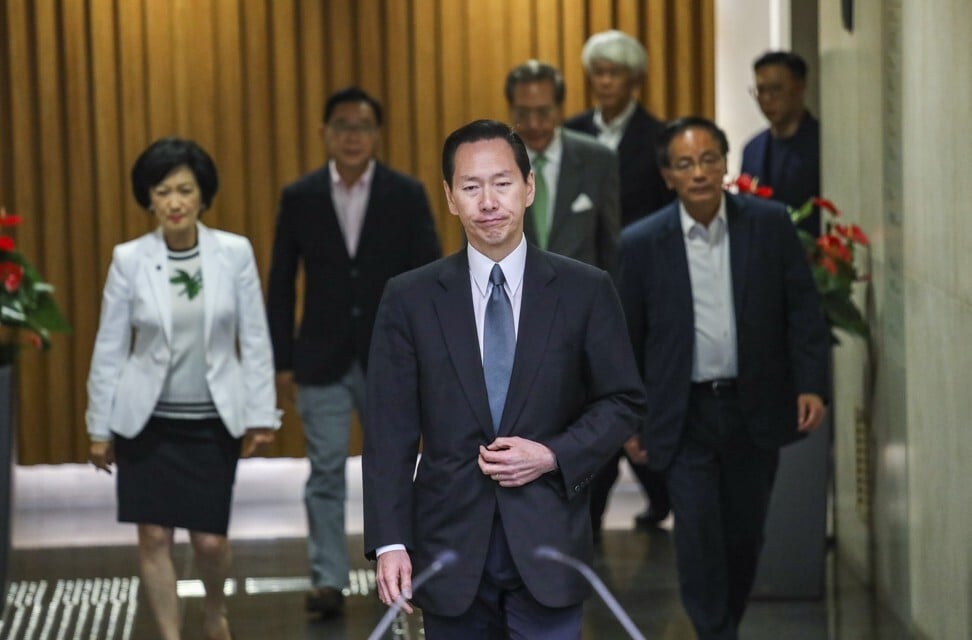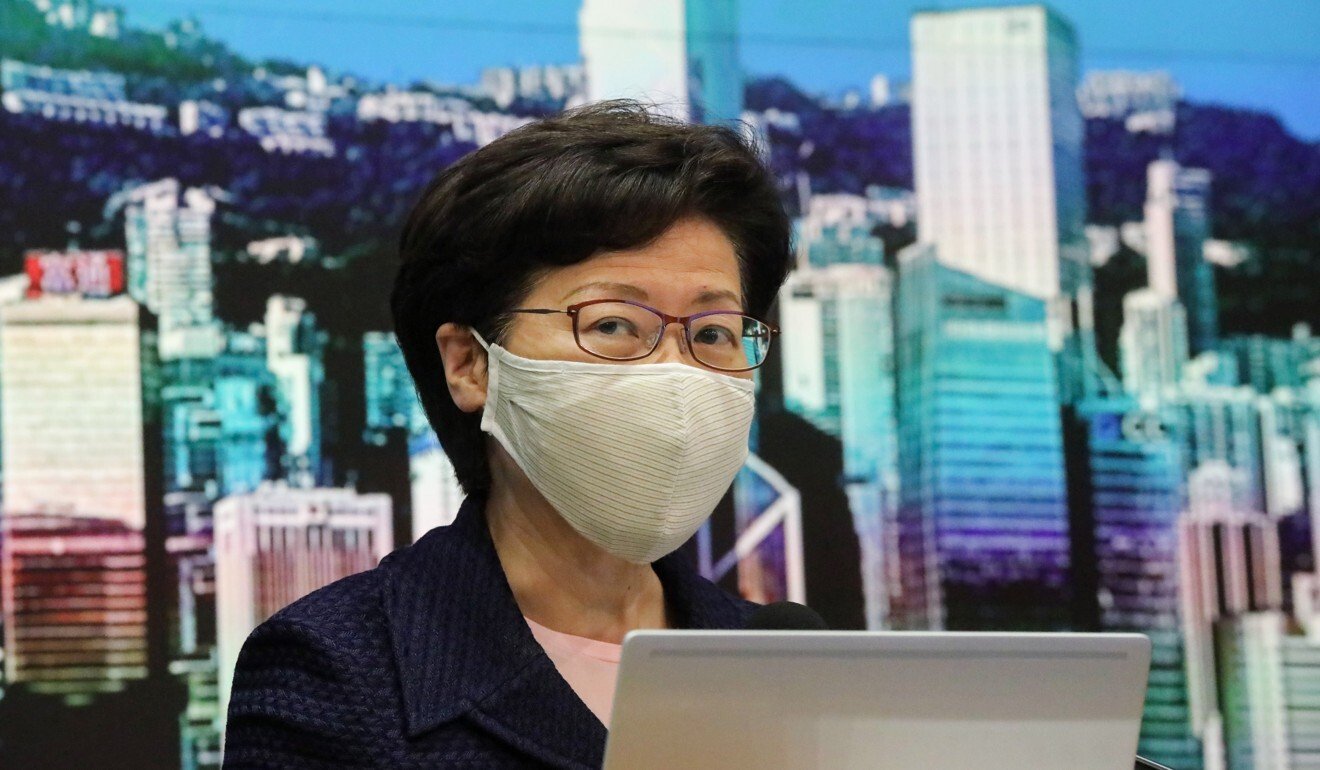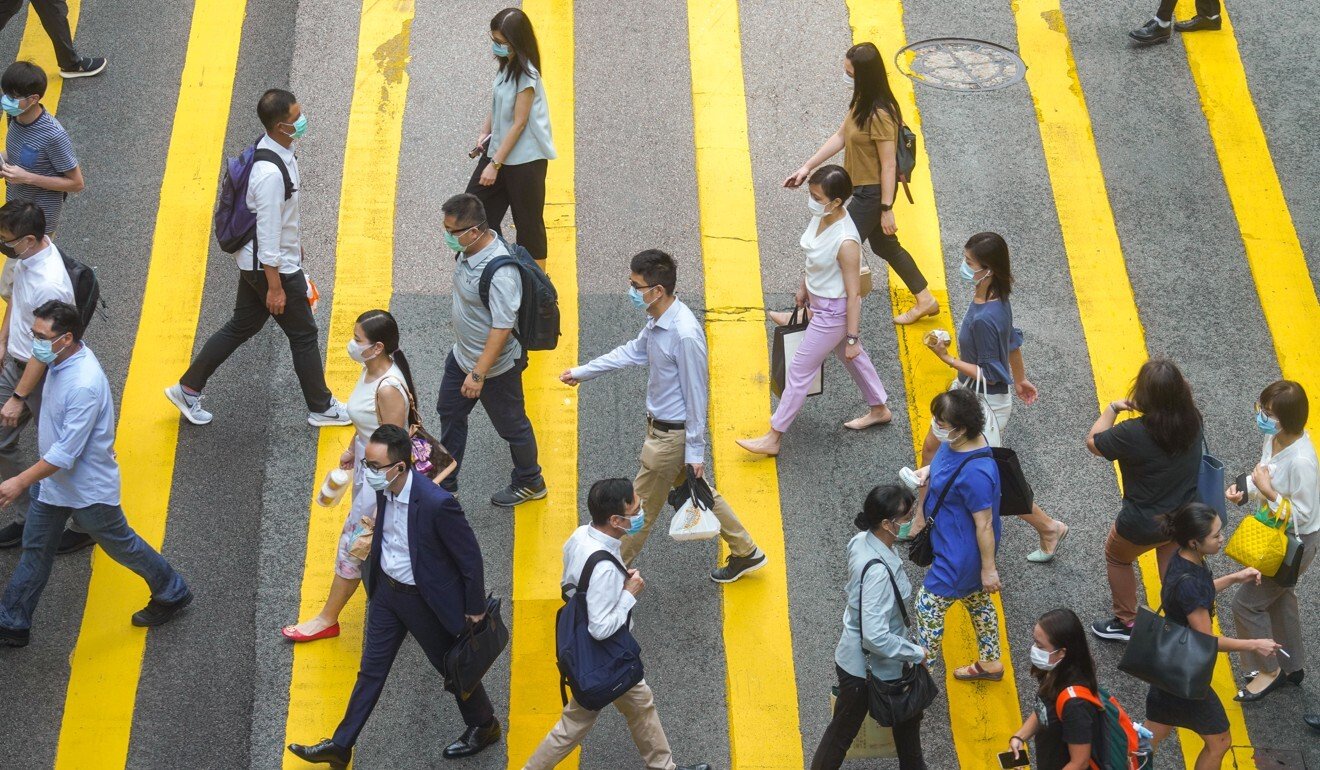
Hong Kong’s crises could have a silver lining – reform of the Executive Council
- One reason for the government’s consistent failure to gauge public opinion is the domination of the Executive Council by members of the business elite and pro-government politicians
- A more diverse council which doesn’t see the chief executive as its boss would be more effective
Perusing the headlines of newspapers chosen at random, one might almost be led to believe that the world’s leaders are engaged in a secret contest among themselves to see who can reach the lowest depths of unpopularity in the shortest possible time. Those who call Hong Kong home would certainly insist that Chief Executive Carrie Lam Cheng Yuet-ngor belongs at the very head of that list.
Why has the uppermost echelon of the political class consistently failed to gauge the temperature of public opinion, falling foul even of its most steadfast of supporters? With the city buckling under the weight of compounding crises, we need more attention to the root causes of our plight, which is structural and systemic.
The breathtakingly tone deaf performance of the Hong Kong government over the last year, however, has aroused widespread criticism, and given the make-up of the Executive Council, this comes as little surprise.

The Executive Council is, after all, composed of 16 “official members” and 16 “non-official members”. High-ranking officials and ministers, many of them active heads of department in the government, make up the official members.
Nine of the non-official positions are filled by active pro-establishment politicians, seven current legislators and one former legislator. Four other positions are led by people representing the business and finance community, two are former government bureaucrats, and only one member does not fall into any of these categories.
It is obvious that there is a high degree of homogeneity in this composition – here are gathered the elite of the political and business class, a community that has experiences, values and ideological inclinations in common.
Take courage, Mrs Lam, and do what needs to be done
How might it be otherwise? Article 55 of the Basic Law indicates that Executive Council seats are to be assigned to “principal officials of the executive authorities” – code for heads of department of the state bureaucracy – as a matter of course. However, though the article states that certain seats are to be allocated to members of the Legislative Council, it does not stipulate whether they should belong to one political persuasion or another.
More interestingly, the article also says the chief executive can grant seats to “public figures”, the meaning of which is left entirely to the chief executive’s interpretation. In theory, the chief executive has been granted the capacity to form an effective policymaking mechanism. This capacity, however, has not been exercised properly.

We would like to propose three preliminary principles that a reform of the Executive Council could observe.
The first principle would be diversity. It is imperative to diversify the council’s membership, and this can be done using the most common statistical criteria – gender, age, marital status, language, ethnicity, religion, profession, class, etc. Only in this way can we ensure that the rights of the most marginalised and disadvantaged members of society can be protected in the highest registers of government.
The second is independence and equality. The chief executive and the members of council should, ideally, have no direct professional relationships with one another. Independence would safeguard autonomy of thought, and equality would prevent the formation of hierarchical dependencies.
Nobody in the Executive Council should regard the chief executive as their “boss”. Members of the council are obliged to serve the city, rather than subordinating their better judgment to their superiors. It is a hallmark of strong leaders that they would heed the counsel of those who would defy them, turning dispute to the advantage of governance, rather than regarding it as empty dissent.

The final principle is innovation. The crises of the last year have made it patently clear that the council is not equipped to confront what is transpiring all around it. If the government is to survive this storm and the next, it must recognise that it is time to infuse new, broader perspectives into the council.
Breaking with convention and admitting political “amateurs” and “outsiders” into the halls of government would be a bracing panacea for the innate conservatism of professional bureaucrats.
Seen in this light, the conclusion to this crisis might yet be a felicitous one, if the government learns its lesson and takes decisive measures to rescue itself.
Chan Kwok Bun is University Adjunct Professor at the Hang Seng University of Hong Kong, and founder and chairman of Chan Institute of Social Studies. Chong Tik Man is a researcher at the Chan Institute of Social Studies


